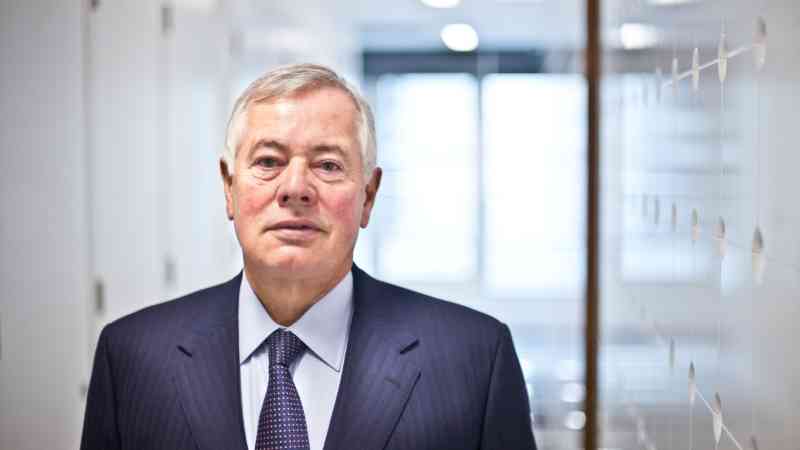A biotechnology company chaired by Sir Nigel Rudd, the City veteran and industrialist, which delisted from the London stock market this month in a last-ditch attempt to avert collapse has fallen into administration.
Destiny Pharma has appointed Stephen Cork and Mark Smith of Cork Gully as joint administrators after it was unable to secure a licensing partner for its lead drug candidate, XF-73 nasal, or to access further capital.
It said it had appointed administrators “to protect the interests of the company’s stakeholders”, adding: “The joint administrators intend to progress discussions with potential investors, partners and interested parties with a view to achieving an optimal outcome.”
There are hopes investors can still be found to salvage the company’s key assets.
The sudden fall into administration at Destiny comes after it moved to delist from Aim, the London Stock Exchange’s junior market, this summer following a strategic review.
Destiny had just £2.9 million of cash left at the end of June and Rudd, who returned as chairman a year ago, had said last month that the board, advised by Rothschild & Co, believed delisting was the “only viable option” to avert liquidation.
Rudd said then that talks with possible investors had concluded that “a possible funding proposal could only be forthcoming if Destiny was a private company”.
Destiny is among a series of British biotechnology companies to have quit the Aim this year in search of funds away from the public market, including C4X Discovery and Redx Pharma.
Destiny was floated seven years ago at 157p per share, raising £12.4 million, valuing it at £63.6 million.
The company was founded in 1997 by Bill Love, who remained its chief scientific officer and largest shareholder with a stake of about 6.8 per cent at the time of the delisting.
It is based at the Sussex Innovation Centre at the University of Sussex and employs 15 people. They were informed of the administration this morning.
Rudd, who built Williams Holdings, the industrial group, and is a former chairman of Alliance Boots, Heathrow and Pendragon, the car dealership that he founded, first invested in Destiny 20 years ago and was its chairman from 2010 to 2018.
He retained about 2.4 million shares and had returned as chairman last summer at a “critical juncture” for Destiny, alongside the appointment of Chris Tovey, a former executive of GW Pharmaceuticals, as chief executive.
Together they had sought to rescue the development of Destiny’s lead drug candidate. Alongside pursuing a licensing deal, Destiny redesigned the late-stage clinical trial to cut costs by more than half to £25 million and strengthened the market research supporting its “blockbuster potential” of peak sales of more than $1 billion in the United States.
